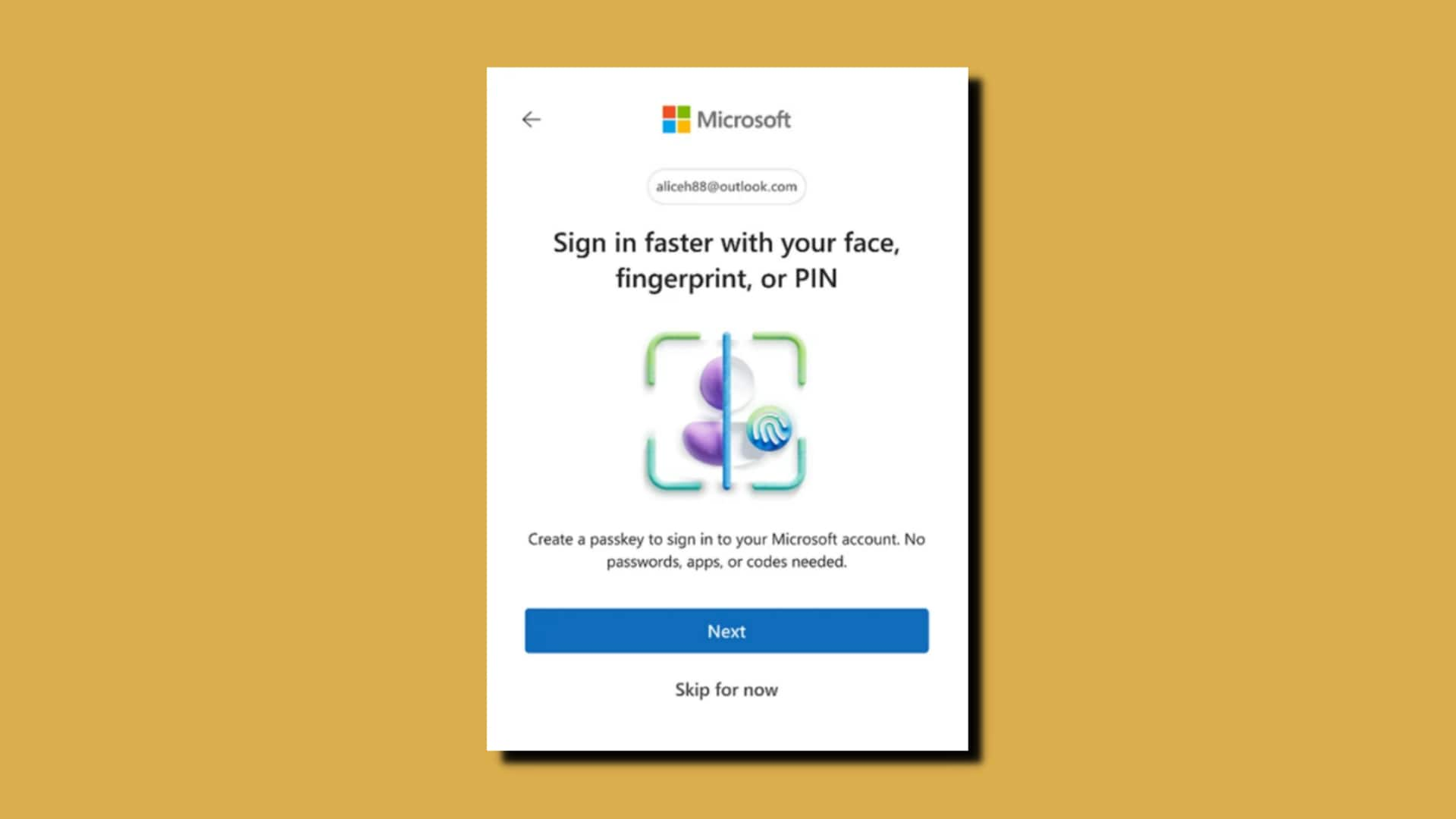
Microsoft goes passwordless to simplify logins for new users
What's the story
Microsoft is taking major steps in its quest for a passwordless future. The tech giant has announced that new users signing up for Microsoft accounts will no longer have to create passwords. Instead, they can use passkeys for a more secure and user-friendly login experience. Passkeys can be your fingerprint or face scan, or even a simple PIN on your device. The move is part of an industry-wide push to ditch passwords for their vulnerability and forgetfulness issues.
Industry collaboration
Microsoft joins tech giants in password-free sign-in initiative
Microsoft's decision to introduce passkeys comes in line with the likes of Apple, Google, Amazon, PayPal, and Adobe. The tech giants are working with the FIDO Alliance, an organization focused on creating better and more secure ways of accessing online accounts. This joint effort highlights a major industry shift toward more secure methods of authentication than just passwords.
User experience
New accounts default to passwordless sign-ins
New Microsoft accounts now default to passwordless sign-ins, doing away with the need to create a password during registration. Instead, users are offered a range of secure sign-in options. Existing users can also ditch their passwords from account settings, making the sign-in process both faster and more secure. Passkey users, according to Microsoft, are three times more likely to successfully log in than password users. Passkey logins are also up to eight times faster than traditional methods.
Security enhancement
Passkeys combat rising online threats
The introduction of passkeys comes in response to escalating online security threats. In 2024 alone, Microsoft faced some 7,000 password attacks every second, a number that had doubled from the year before. Cybercriminals often exploit techniques like phishing or weak password guessing to compromise accounts. However, passkeys are more secure as they are linked to your device and significantly harder for hackers to steal.